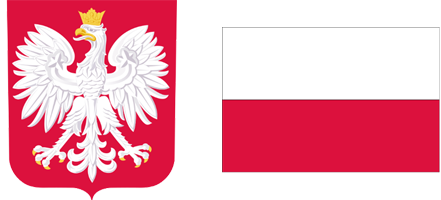Current issue
In press
Archives
About the Journal
Focus and Scope
Editorial Team
Contact
Journal Policies
Journal History
Indexing
Sponsorship
Most read articles
Instruction for Authors
Author guidelines
Submission
Authorship
Copyright Notice
Privacy Statement
Author Fees
PB Society
PB Society
Acta Agrobotanica
Acta Mycologica
Wiadomości Botaniczne
Monographiae Botanicae
Authorship
The journal endorses the International Committee of Medical Journal Editors (ICMJE) guidance concerning authorship credit. According to the guidance the authorship should be “based on the following 4 criteria:
“Contributors who meet fewer than all 4 of the above criteria for authorship should not be listed as authors, but they should be acknowledged. Examples of activities that alone (without other contributions) do not qualify a contributor for authorship are acquisition of funding; general supervision of a research group or general administrative support; and writing assistance, technical editing, language editing, and proofreading.”.
The following authorship problems should be prevented before submitting a paper: “ghostwriting” and “guest authorship”. Ghostwriting refers to the case when a person who made substantial contributions to a publication is not credited as an author or, in case of purely technical support, insufficienf for authorship, the person is not acknowledged in a publication. Guest authorship is the opposite situation, when a person appears in the publication as an author despite insignificant contribution or even absence from the scientific process.
Contributorship
In case of more than one author contributing to the research, individual contributions (substantial, not percentage) of each author must be specified in the manuscript (in the “Authors' contributions” section; e.g., research designing: Author1; conducting experiments: Author2; writing the manuscript: Author1, Author2; etc.). This information will be published in the article.
Changes in authorship
In accordance with COPE guidelines, any changes in authorship require written consent of all authors sent individually via direct email to the Editor-in-Chief. Each of them must issue a statement on the acceptance of the proposed changes in the authorship of submitted manuscripts or published articles. Corresponding author takes responsibility for providing a clear reason for the change(s) and should coordinate interaction between the authors and the Editor-in-Chief. In case no satisfactory agreement can be reached among the authors, they must contact their parent institution(s) for final decision; the editors take no responsibility to resolve such disagreements. If a change in authorship pertains to the already published paper, it will be executed by publishing a correction article.
- Substantial contributions to the conception or design of the work; or the acquisition, analysis, or interpretation of data for the work; AND
- Drafting the work or revising it critically for important intellectual content; AND
- Final approval of the version to be published; AND
- Agreement to be accountable for all aspects of the work in ensuring that questions related to the accuracy or integrity of any part of the work are appropriately investigated and resolved.
“Contributors who meet fewer than all 4 of the above criteria for authorship should not be listed as authors, but they should be acknowledged. Examples of activities that alone (without other contributions) do not qualify a contributor for authorship are acquisition of funding; general supervision of a research group or general administrative support; and writing assistance, technical editing, language editing, and proofreading.”.
The following authorship problems should be prevented before submitting a paper: “ghostwriting” and “guest authorship”. Ghostwriting refers to the case when a person who made substantial contributions to a publication is not credited as an author or, in case of purely technical support, insufficienf for authorship, the person is not acknowledged in a publication. Guest authorship is the opposite situation, when a person appears in the publication as an author despite insignificant contribution or even absence from the scientific process.
Contributorship
In case of more than one author contributing to the research, individual contributions (substantial, not percentage) of each author must be specified in the manuscript (in the “Authors' contributions” section; e.g., research designing: Author1; conducting experiments: Author2; writing the manuscript: Author1, Author2; etc.). This information will be published in the article.
Changes in authorship
In accordance with COPE guidelines, any changes in authorship require written consent of all authors sent individually via direct email to the Editor-in-Chief. Each of them must issue a statement on the acceptance of the proposed changes in the authorship of submitted manuscripts or published articles. Corresponding author takes responsibility for providing a clear reason for the change(s) and should coordinate interaction between the authors and the Editor-in-Chief. In case no satisfactory agreement can be reached among the authors, they must contact their parent institution(s) for final decision; the editors take no responsibility to resolve such disagreements. If a change in authorship pertains to the already published paper, it will be executed by publishing a correction article.
We process personal data collected when visiting the website. The function of obtaining information about users and their behavior is carried out by voluntarily entered information in forms and saving cookies in end devices. Data, including cookies, are used to provide services, improve the user experience and to analyze the traffic in accordance with the Privacy policy. Data are also collected and processed by Google Analytics tool (more).
You can change cookies settings in your browser. Restricted use of cookies in the browser configuration may affect some functionalities of the website.
You can change cookies settings in your browser. Restricted use of cookies in the browser configuration may affect some functionalities of the website.


